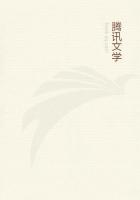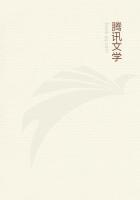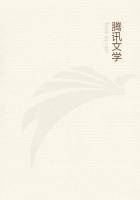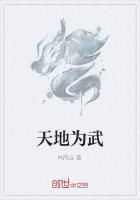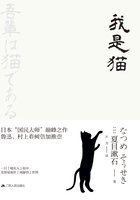But I say, the martyr in this case, from first to last, is the husband. Whatever the poor woman may have endured, that unhappy man at the Bar has suffered, and is now suffering, more. If he had not been the kindest of men, the most docile and most devoted of husbands, he would never have occupied his present dreadful situation. A man of a meaner and harder nature would have felt suspicions of his wife's motives when she asked him to buy poison--would have seen through the wretchedly commonplace excuses she made for wanting it--and would have wisely and cruelly said, 'No.' The prisoner is not that sort of man. He is too good to his wife, too innocent of any evil thought toward her, or toward any one, to foresee the inconveniences and the dangers to which his fatal compliance may expose him. And what is the result? He stands there, branded as a murderer, because he was too high-minded and too honorable to suspect his wife."Speaking thus of the husband, the Dean was just as eloquent and just as unanswerable when he came to speak of the wife.
"The Lord Advocate," he said, "has asked, with the bitter irony for which he is celebrated at the Scottish Bar, why we have failed entirely to prove that the prisoner placed the two packets of poison in the possession of his wife. I say, in answer, we have proved, first, that the wife was passionately attached to the husband; secondly, that she felt bitterly the defects in her personal appearance, and especially the defects in her complexion; and, thirdly, that she was informed of arsenic as a supposed remedy for those defects, taken internally. To men who know anything of human nature, there is proof enough. Does my learned friend actually suppose that women are in the habit of mentioning the secret artifices and applications by which they improve their personal appearance? Is it in his experience of the *** that a woman who is eagerly bent on ****** herself attractive to a man would tell that man, or tell anybody else who might communicate with him, that the charm by which she hoped to win his heart--say the charm of a pretty complexion--had been artificially acquired by the perilous use of a deadly poison? The bare idea of such a thing is absurd. Of course nobody ever heard Mrs. Eustace Macallan speak of arsenic. Of course nobody ever surprised her in the act of taking arsenic. It is in the evidence that she would not even confide her intention to try the poison to the friends who had told her of it as a remedy, and who had got her the book. She actually begged them to consider their brief conversation on the subject as strictly private. From first to last, poor creature, she kept her secret; just as she would have kept her secret if she had worn false hair, or if she had been indebted to the dentist for her teeth. And there you see her husband, in peril of his life, because a woman acted _like_ a woman--as your wives, gentlemen of the Jury, would, in a similar position, act toward You."After such glorious oratory as this (I wish I had room to quote more of it!), the next, and last, speech delivered at the Trial--that is to say, the Charge of the Judge to the Jury--is dreary reading indeed.
His lordship first told the Jury that they could not expect to have direct evidence of the poisoning. Such evidence hardly ever occurred in cases of poisoning. They must be satisfied with the best circumstantial evidence. All quite true, I dare say. But, having told the Jury they might accept circumstantial evidence, he turned back again on his own words, and warned them against being too ready to trust it! "You must have evidence satisfactory and convincing to your own minds," he said, "in which you find no conjectures--but only irresistible and just inferences." Who is to decide what is a just inference? And what is circumstantial evidence _but_ conjecture?
After this specimen, I need give no further extracts from the summing up. The Jury, thoroughly bewildered no doubt, took refuge in a compromise. They occupied an hour in considering and debating among themselves in their own room. (A jury of women would not have taken a minute!) Then they returned into Court, and gave their timid and trimming Scotch Verdict in these words:
"Not Proven."
Some slight applause followed among the audience, which was instantly checked. The prisoner was dismissed from the Bar. He slowly retired, like a man in deep grief: his head sunk on his breast--not looking at any one, and not replying when his friends spoke to him. He knew, poor fellow, the slur that the Verdict left on him. "We don't say you are innocent of the crime charged against you; we only say there is not evidence enough to convict you." In that lame and impotent conclusion the proceedings ended at the time. And there they would have remained for all time--but for Me.

